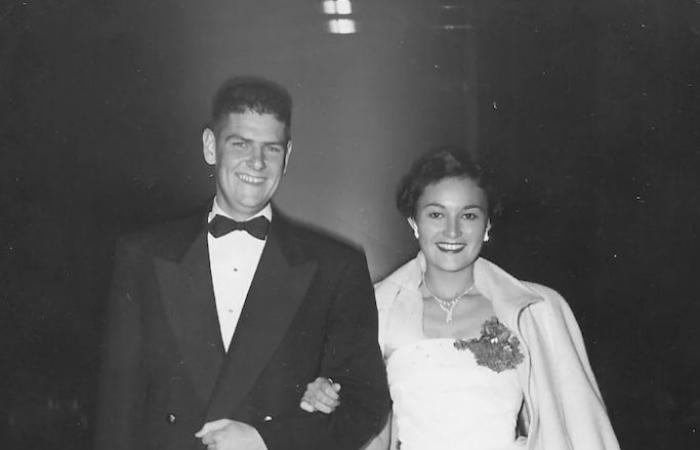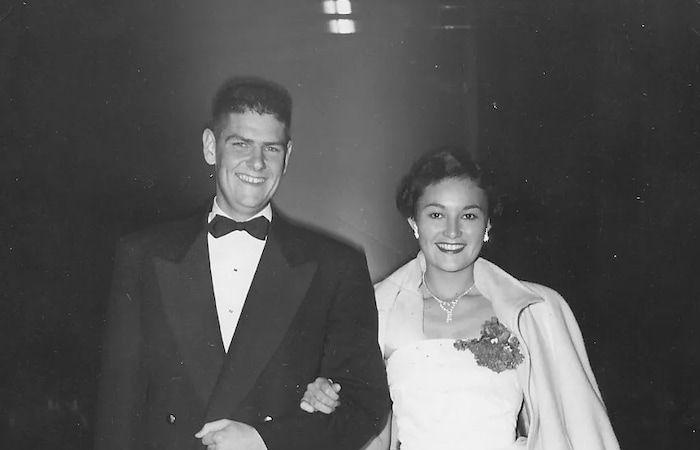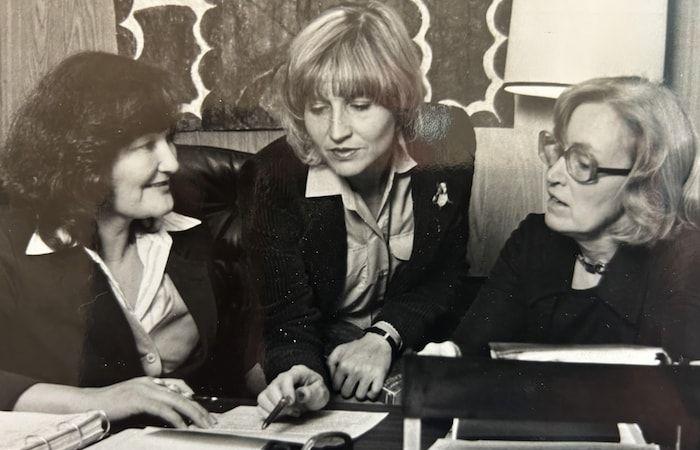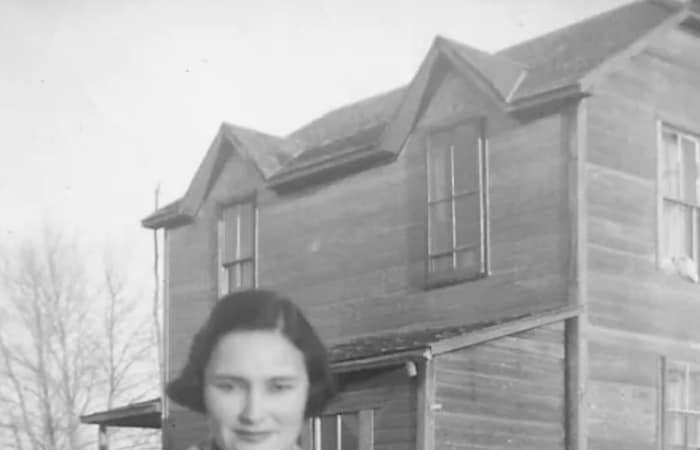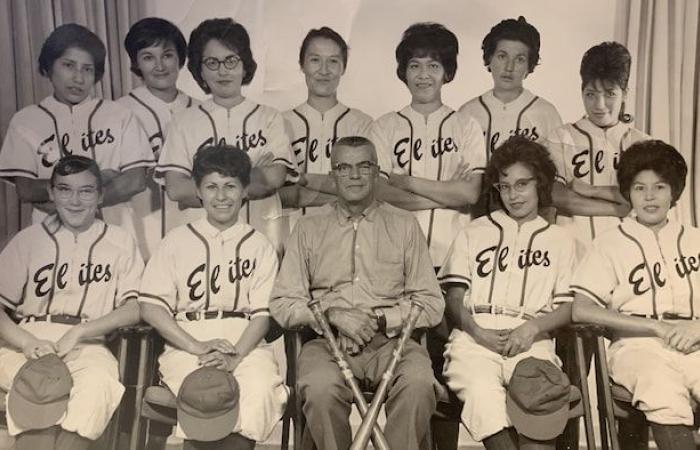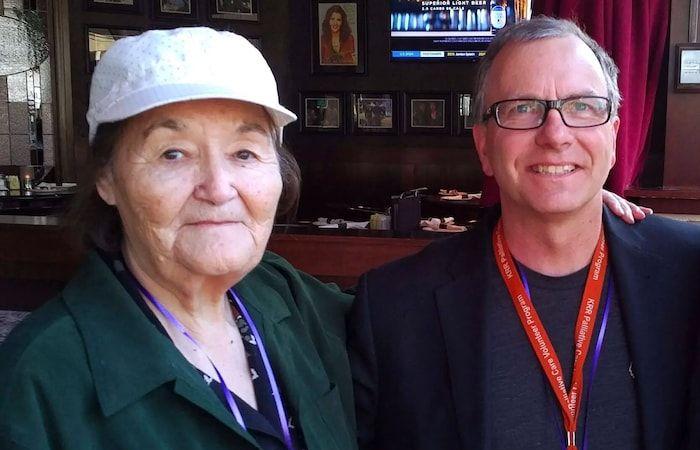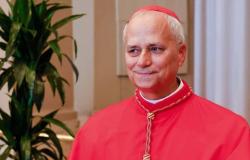Marion Lillian Ironquil Meadmore, the country’s first indigenous lawyer, died on February 19 at the age of 89.
She was born in 1936 in the screaming nation of Peepeekisis, in Saskatchewan. His father, Joe Ironquil, was Ojibwé, and his mother, Helen Poitras, was shouting and mixed up.
Her admission to the Manitoba Bar on June 29, 1978, made her a pioneer, but also a source of inspiration for many people.
It has drawn a new road to allow Aboriginal women like me to study law.
Karine Pelletier, who is now president of the Manitoba Labor Commission, remembers that when she studied law in the early 2000s, this pioneer was already talking about her.
She also underlines the age of Marion Ironquil Meadmore when she became a lawyer: 42 years old. It is a bit of a source of inspiration for me, which made a control in law a little later in my life.
When graduating, Marion Ironquil Meadmore had been married for over 20 years to Ron Meadmore, a former line of line Blue Bombers of Winnipeg, and was the mother of their three boys.

Open in full screen
Marion Ironquil Meadmore and Ron Meadmore were married more than 55 years. The latter died in 2013.
Photo : Shaun Loney
Although her career as a lawyer was short -lived, she who was not registered for six years with the bar as a active member, she still knew how to drop barriers. She co -founded the first firm composed exclusively of lawyers in Winnipeg.
In a press release published at the time of its death, the Assembly of Manitoba chiefs (AMC) also underlined the essential role it played in the creation of the Association of Indian Lawyers of Canada, Today called Association of the Aboriginal Bar of Canada.

Open in full screen
Marion Ironquil Meadmore and his associates Faigie Fainman and Mary Lamont in 1979
Photo : Shaun Loney
Co -founder of numerous organizations to the test of time
The legal career of Marion Ironquil Meadmore is however only the tip of the iceberg that constitutes his heritage.
The newsletter Communiqué From the Manitoba bar, which pays tribute to her in her May edition, describes her as a defender of indigenous autonomy and economic development.
Marion was an engine of change, a visionary who created institutions that continue to advance sovereignty, rights and self -determination of the First Nations
said the great chief of theAMCKyra Wilson, by press release.
Ms. Ironquil Meadmore actually co -founded, in 1959, the first Aboriginal and Métis friendship center in Canada and, in 1963, organizations currently known by the names of First Nations and Assembly of Manitoba (AMC).
The president of the Métis Federation of Manitoba (MMF), David Chartrand, remembers having met for the first time Ms. Ironquil Meadmore while he was active in the movement of friendship centers.
[La création des Centres d’amitié] is only one of the contributions to the progress of reconciliation in Canada, at a time when very few Canadians included the importance of this work.
A vision that will offer a roof to thousands of indigenous families
In 1970, Marion Ironquil Meadmore co -founded Kinew Housingthe first non -profit housing company in the country. This organization was born out of the concern to fill the lack of decent and affordable housing for the Aboriginal population of Winnipeg, can be read on the website of theOSBL which is still active 55 years after its foundation.
-She described First Nations members in a way as economic refugees coming to Winnipeg because their economies collapsed at home because of government policies and actions of Indian agents
explains the founder of the social company BUILDShaun Loney, who considered Marion Ironquil Meadmore as his mentor.
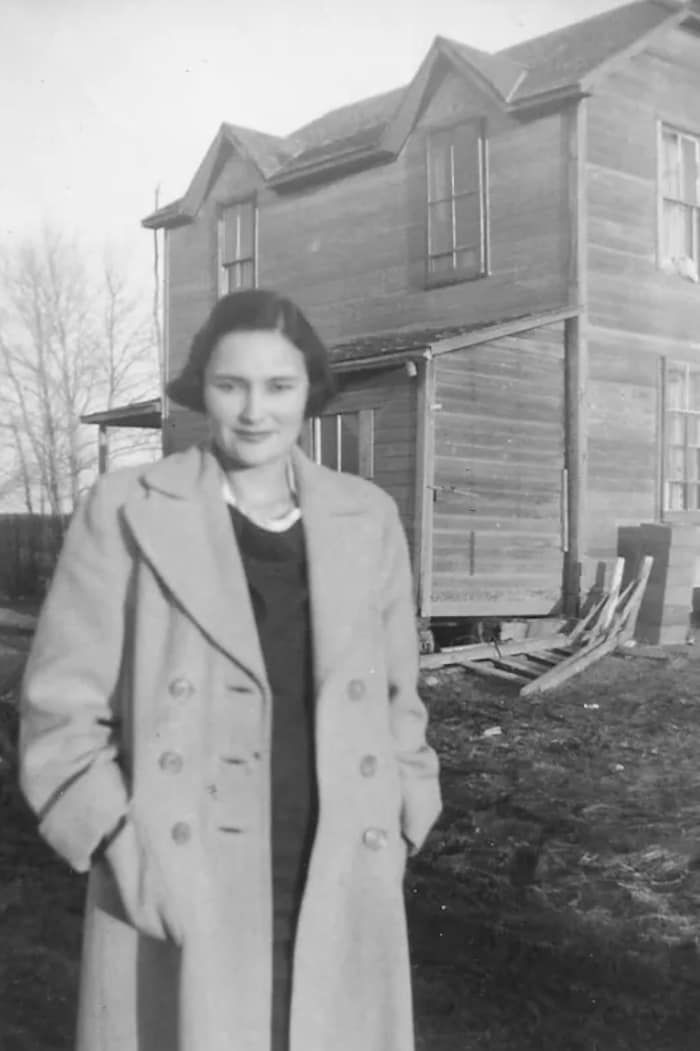
Open in full screen
Marion Ironquil Meadmore in front of her childhood house in Saskatchewan. Her father, Joe Ironquil, was head of the Peekisis Cree Nation, where she grew up.
Photo : Shaun Loney
[Kinew Housing] is the expression of its conception of indigenous economies in a modern context: we do not build wealth for ourselves, we build it for each other. The fact that she decided at the time to make a OSBL was remarkably visionary
adds Shaun Loney.
Today, the organization has and manages nearly 400 properties, which are rented at low prices to Aboriginal people in Winnipeg, according to service 211 in the province.
A life marked by resilience
The Prime Minister of Manitoba, Wab Kinew, describes the death of Marion Ironquil Meadmore of immense loss for the province.
Marion was a pioneer: the first Aboriginal lawyer in Canada, an accomplished athlete and a leader of Aboriginal governance. It leaves an inheritance of resilience and success.

Open in full screen
“She won the gold medal for Manitoba at the first Aboriginal games from North America to Edmonton in 1990,” says Shaun Loney. Aboriginal baseball is super competitive! Shaun Loney says.
Photo : Shaun Loney
His friend Shaun Loney underlines that the adversity in which Marion Ironquil Meadmore was confronted throughout his life did not prevent him from succeeding.
[Elle] became the first indigenous lawyer in Canada, a path strewn with pitfalls, especially since it was sent to a boarding school for Aboriginal people, where it did not receive quality education
he says.
Even at the end of his life, the Parkinson did not prevent him from expressing himself, remembers Mr. Loney. His wife and he helped him sleep on paper when she was no longer able to do him herself.

Open in full screen
Marion Ironquil Meadmore et Shaun Loney en 2016
Photo : Shaun Loney
His mind remained alive. She said, “I want to write a letter on this or that”, and she expressed exactly what she wanted.
A good example of this is the speech that her son read for her when she received the honorary doctorate from the University of Manitoba. It was shiny
he continues. last spring, she was among the five highest grade recipients awarded by the establishment.
The many facts of Marion Ironquil Meadmore also earned him the Order of Canada in 1985, but it is above all the impact that she had on thousands of lives that last.
Thousands of Winnipois live today in housing thanks to the organization it has founded. It is also at the origin of organizations which defend the rights of indigenous peoples and has created gathering places for communities. Without her, Winnipeg would be much darker and less carrying hope
says Shaun Loney.
I think she is one of the most remarkable people who have ever lived in Winnipeg
he concludes.

